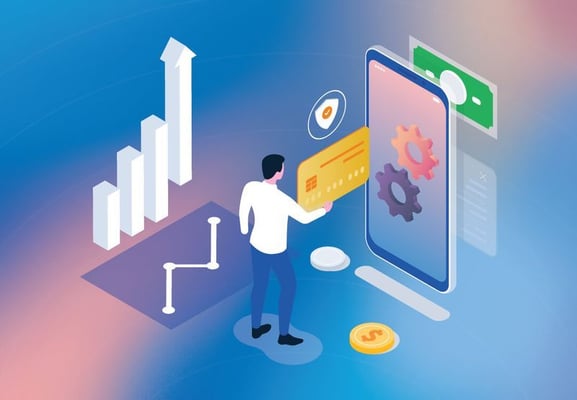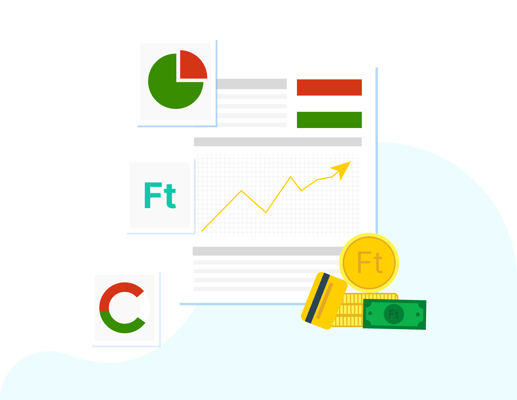The potential of open banking and payment orchestration is no longer unrealized. Recent technological advances have given both solutions a newfound recognition, opening up opportunities to revolutionize payment processes with benefits for all involved - from financial institutions and merchants to customers.
In this blog, we'll discuss payment orchestration and open banking and how they complement each other. You'll also learn how payment orchestrators help merchants boost revenue via open banking. So, read in full.
What is Payment Orchestration?
In its simplest terms, payment orchestration is the process of integrating and managing end-to-end payment processes, from payment authorization and routing transactions to making settlements.
Using payment orchestration platforms, merchants can integrate multiple payment service providers, expand to a broader market, and offer a range of payment methods and currencies while complying with all regulations. And all this happens without making any major logistical changes.
In addition to helping merchants integrate multiple payment gateways, orchestration platforms also smartly route transactions. For instance, if a customer initiates a transaction and the default payment gateway is not working, the orchestration platform will smartly route the transaction through the best possible payment gateway without letting the customer experience suffer.
What Is Open Banking?
Open banking is an initiative with the potential to reshape the entire banking industry. In open banking, the banks offer access to customers' personal and/or financial information to registered Third-party Fintech companies or NBFCs. This happens only after explicit online consent from the customer.
Let's understand open banking with an example:
Imagine there's a person named John looking for a mortgage. John has compared different options and found the one offered by a fintech company, "X," to be ideal. Now, after John puts forward the request for the mortgage, the fintech requests the transaction data from John's bank. This is essential to determine if John is eligible to get the mortgage.
The bank will confirm with John if he is okay with sharing the information and ask him to authenticate. If John successfully authenticates the transaction, the data will be shared with the fintech, who will then make a decision. And that's what open banking is.
The process was instant (instant go- or no-go decision) and required no paperwork, making the customer experience seamless.
The primary motive of this innovative technology is to help new fintech companies make the most of data that wasn't used effectively and create better financial products. Better financial products will benefit both the merchants and customers as merchants can offer better services, and customers will get a more seamless experience.
Now that you know what open banking and payment orchestration are, let's learn how they complement each other.
How Can Payment Orchestration Help Merchants Increase Revenue Through Open Banking?
As you must've noticed, the customer's confidential banking information is shared with the 3rd parties in open banking. Although it happens with the customer's consent, there's a risk of data being stolen or used for fraudulent purposes.
That's when orchestration comes in. Payment orchestration provides you with fraud prevention tools that you can use to minimize instances of fraud. This not only helps the merchant but also the customer ensuring data security.
Moreover, payment orchestration helps handle reconciliation and process refunds and payouts instantly, reducing the burden on the merchant's shoulders.
In a nutshell, payment orchestration helps with the mass adoption of open banking because of the advantages it brings to the table. Where open banking helps introduce better financial services, payment orchestration helps merchants embrace open banking by allowing them to integrate open banking seamlessly.
%20(1).png?width=2500&height=2831&name=Infographic%20-%202%20(6)%20(1).png)
1. Offer Multiple Payment Options
Payment Orchestrators can help merchants integrate multiple payment gateways and offer numerous payment options, including open banking. This way, merchants can reduce the need for card payments and direct debits, which often invite high transaction fees, reducing the overall costs.
Also, the number of intermediaries involved in a transaction is cut down via open banking. And as intermediaries reduce, the transaction costs reduce as well. This way, merchants can save quite a lot of money.
2. Improve Success Rates With Intelligent Routing
One of the most significant advantages of combining orchestration and open banking is intelligent routing. For instance, inai allows merchants to route transactions through the most viable payment service provider based on success rate, transaction fee, up-time, and more.
Let's say a customer initiates a transaction, but the payment gateway cannot process it. In that case, the payment orchestrator will route the transaction through another more viable option that promises a better success rate at affordable prices.
3. Integrate With Different PSPs Across the Globe
As stated above, payment orchestration allows merchants to integrate different payment service providers. When you have different PSPs, you can offer a broader range of payment methods and sell your services to customers across the globe, making business expansion a breeze. And this helps merchants boost their business bottom line.
4. Increase Conversion Rate
One of the worst things merchants suffer from is high cart abandonment, primarily because of friction the customer faces from the initiation of the transaction to its completion. However, merchants can reduce cart abandonment and boost conversion rates using open banking.
Open banking allows access to customers' banking data which can be further used to understand the customer's financial behavior. Also, payment orchestrators such as inai will enable you to manage all your payments in place, making data analysis easy. You can leverage this data and make the experience even more personalized for your customers.
This way, you can personalize your product offerings, offer a seamless customer experience, and boost conversion rates.
5. Ensure Enterprise-Grade Security
Data in open banking is shared with the customer's explicit consent and requires technical authorization and authentication from the user. However, there's still a chance of data being stolen and used for fraudulent purposes.
However, payment orchestration can help you resolve this issue. Payment orchestration platforms come equipped with fraud prevention tools that offer enterprise-grade security, minimizing the probability of data being stolen.
6. Better Customer Experience
If you start offering open banking as a payment method via orchestration, you can understand your customers better, provide better security, and improve the transaction success rate. And all this amounts to better customer experience, which is paramount for any business.
How can inai Help?
Now that you know how beneficial the combination of open banking and payment orchestration is, it's time to integrate a payment orchestrator into your business. And that's when inai comes in.
inai is a payment orchestration platform that connects you with 30+ payment gateways, offers 300+ payment methods, and supports open banking. From smartly routing transactions, preventing frauds or chargebacks, analyzing complex consumer data, and drawing valuable insights, inai allows you to do everything.
Want to know how inai works and how we can help you make the most of open banking? Book a free trial now!
.png?width=123&height=71&name=inai%20logo%20-%20dark%201(1).png)
.png)
%20(1).png?width=4068&height=1080&name=CTA%20(24)%20(1).png)




.png?height=400&name=Header%20-%20How%20Do%20Payment%20Orchestrators%20Solve%20Payment%20Settlement%20Issues%20for%20Merchants_%20(1).png)